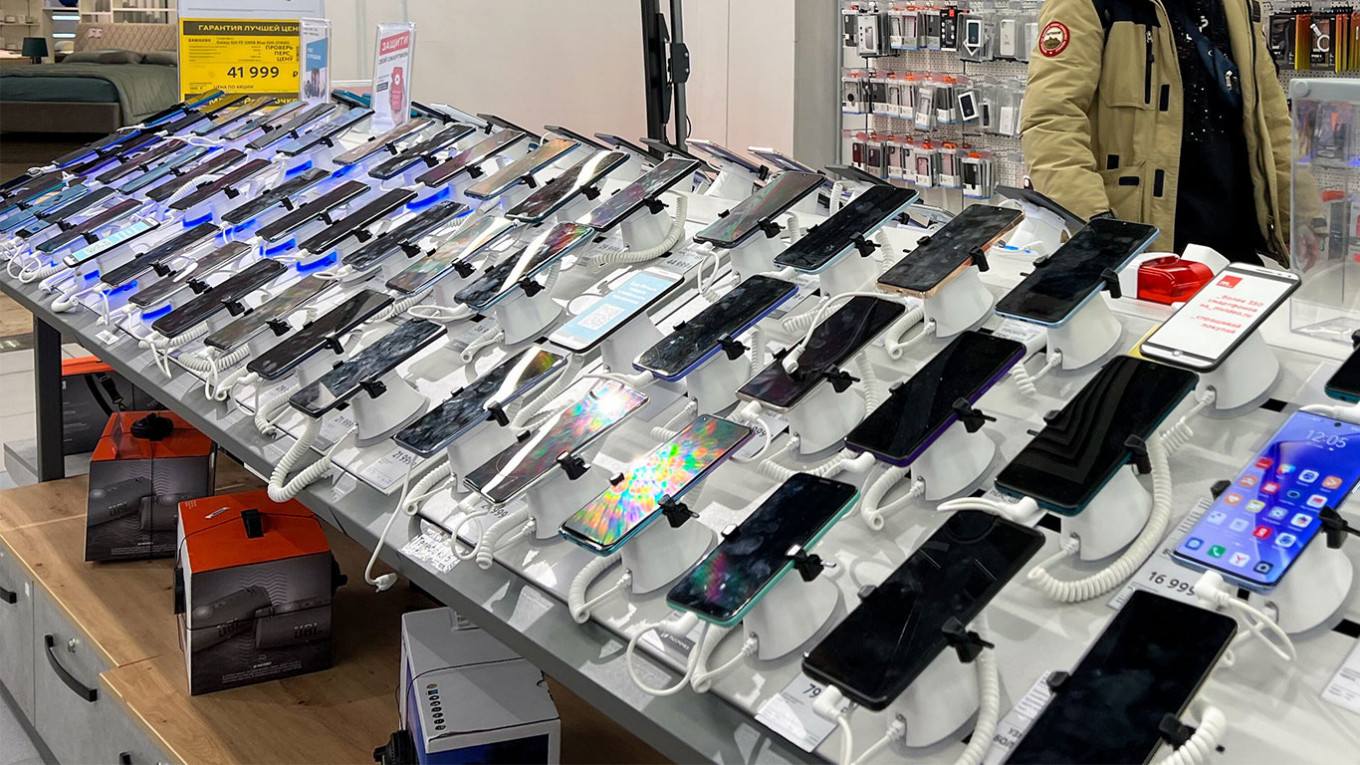The first shipments of smartphones and game consoles under Russia’s so-called “parallel import” scheme have arrived in the country, Kommersant newspaper reported Thursday.
The scheme was designed as a way to maintain imports of consumer goods into Russia despite Western sanctions and an exodus of Western firms from the Russian market.
Mobile retailer Svyaznoy was the first company to publicly announce it has taken advantage of “parallel imports,” according to Kommersant, topping up its inventories with the latest iPhone and Samsung smartphones, as well as PlayStation, Xbox and Nintendo game consoles.
Russia’s parliament passed legislation this week removing penalties for importing goods on a government-approved list – including cars, clothes and raw materials – without approval from trademark owners.
Other Russian retailers have declined to acknowledge if they, too, have imported consumer goods not originally intended for the Russian market.
Electronic manufacturers in South Korea, Japan and the U.S. suspended sales in Russia after Moscow’s invasion of Ukraine in February.
The items that have arrived in Russia were likely originally intended for export to one of the other four ex-Soviet members of the Moscow-led Eurasian Economic Union – Armenia, Belarus, Kazakhstan or Kyrgyzstan.
Svyaznoy, according to Kommersant, promised that Russian consumers would not experience issues with activating the devices.
But the cost of the “parallel import” goods will likely be significantly higher than the equivalent products sold in Russia before the start of the war.
Electronics prices could go up by as much as 20%, according to an unnamed industry source quoted by Kommersant.
However, Svyaznoy vowed to take on the warranty costs.
“The costs were previously covered by the manufacturer, and now it’s the distributor who will pay,” Svyaznoy was quoted as saying.
A Message from The Moscow Times:
Dear readers,
We are facing unprecedented challenges. Russia's Prosecutor General's Office has designated The Moscow Times as an "undesirable" organization, criminalizing our work and putting our staff at risk of prosecution. This follows our earlier unjust labeling as a "foreign agent."
These actions are direct attempts to silence independent journalism in Russia. The authorities claim our work "discredits the decisions of the Russian leadership." We see things differently: we strive to provide accurate, unbiased reporting on Russia.
We, the journalists of The Moscow Times, refuse to be silenced. But to continue our work, we need your help.
Your support, no matter how small, makes a world of difference. If you can, please support us monthly starting from just $2. It's quick to set up, and every contribution makes a significant impact.
By supporting The Moscow Times, you're defending open, independent journalism in the face of repression. Thank you for standing with us.
Remind me later.






